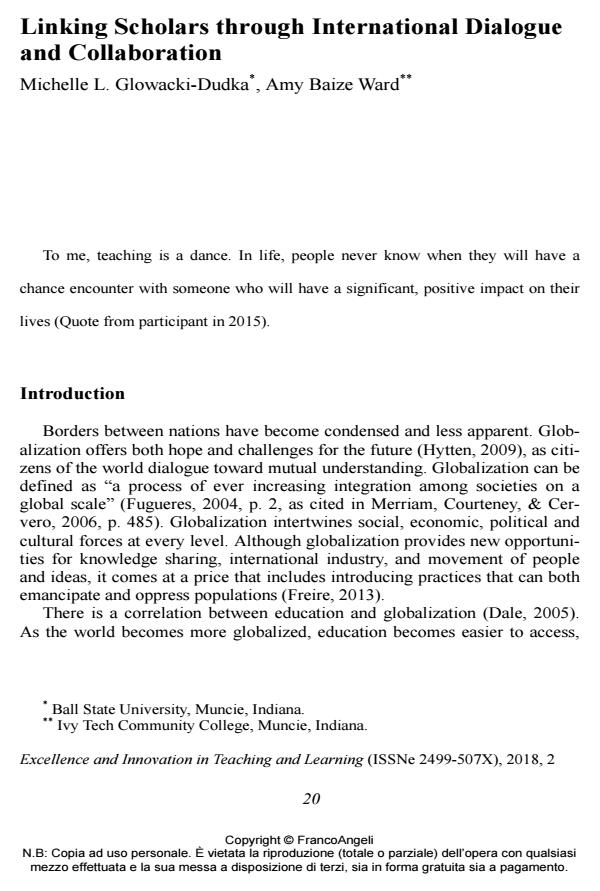Linking Scholars through International Dialogue and Collaboration
Titolo Rivista EXCELLENCE AND INNOVATION IN LEARNING AND TEACHING
Autori/Curatori Michelle L. Glowacki-Dudka, Amy Baize Ward
Anno di pubblicazione 2018 Fascicolo 2018/2
Lingua Inglese Numero pagine 18 P. 20-37 Dimensione file 179 KB
DOI 10.3280/EXI2018-002002
Il DOI è il codice a barre della proprietà intellettuale: per saperne di più
clicca qui
Qui sotto puoi vedere in anteprima la prima pagina di questo articolo.
Se questo articolo ti interessa, lo puoi acquistare (e scaricare in formato pdf) seguendo le facili indicazioni per acquistare il download credit. Acquista Download Credits per scaricare questo Articolo in formato PDF

FrancoAngeli è membro della Publishers International Linking Association, Inc (PILA), associazione indipendente e non profit per facilitare (attraverso i servizi tecnologici implementati da CrossRef.org) l’accesso degli studiosi ai contenuti digitali nelle pubblicazioni professionali e scientifiche.
International dialogue and sharing student experiences can help develop empathy and cultural understanding. This article shares the cross-cultural experience of American doctoral students and recent adult education alumni from Ireland. We examined how the opportunity for international dialogue became an example of transformative and intercultural learning. Through technology, learners engaged to gain a deeper understanding of each other’s personal narrative. The students also recognized how the educational systems in each nation has impacted their learning journeys.
Parole chiave:Comparative adult education, intercultural dialogue, transformative learning
Michelle L. Glowacki-Dudka, Amy Baize Ward, Linking Scholars through International Dialogue and Collaboration in "EXCELLENCE AND INNOVATION IN LEARNING AND TEACHING" 2/2018, pp 20-37, DOI: 10.3280/EXI2018-002002